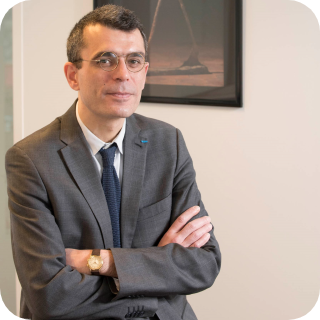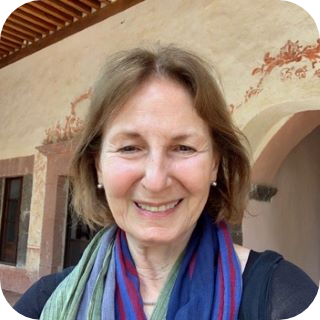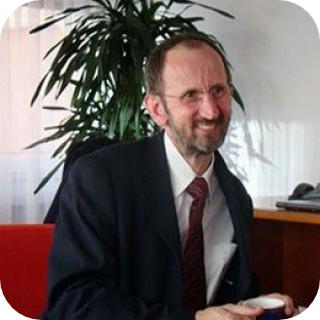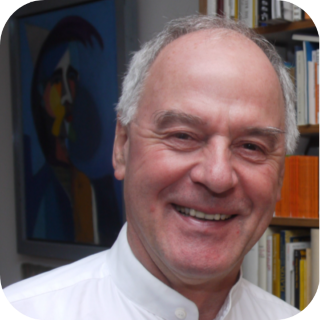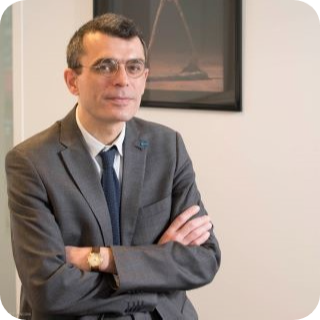
Edouard Durand
Juge au Tribunal pour Enfants, désigné par le président de la République française pour co-présider la Commission indépendante sur l’inceste et les violences sexuelles faites aux enfants (CIIVISE), FRANCE
Edouard Durand est magistrat. Il a été juge des enfants à Marseille et Bobigny et formateur à l’Ecole nationale de la magistrature. Il a été coprésident de la commission Violences du Haut conseil à l’égalité entre les femmes et les hommes et membre du comité d’experts de la Démarche de consensus sur les besoins fondamentaux des enfants en protection de l’enfance. Le 23 janvier 2021 il a été désigné par le Président de la République française pour coprésider la Commission indépendante sur l’inceste et les violences sexuelles faites aux enfants (CIIVISE). Il est l’auteur de plusieurs livres dont « Protéger la mère c’est protéger l’enfant, violences conjugales et parentalité » (Dunod, 2022) et « Défendre les enfants » (Seuil, 2022)
Edouard Durand
Juge au Tribunal pour Enfants, désigné par le président de la République française pour co-présider la Commission indépendante sur l’inceste et les violences sexuelles faites aux enfants (CIIVISE), FRANCE
Qui fait la loi à la maison?
Edouard Durand
L’épreuve du confinement a consolidé en moi cette conviction : l’une des plus grandes inégalités entre les êtres humains est celle qui sépare les personnes qui vivent dans une maison qui est un lieu de sécurité et celles qui vivent dans une maison qui est un lieu de terreur et de confrontation à la mort.
Violences conjugales, inceste, humiliations. Nombreux sont les foyers où les enfants et les femmes principalement sont soumis la violence.
Or l’agresseur bénéficie très largement d’une impunité qui lui permet d’anéantir le bien-être et le développement de ses victimes sans être inquiété par les conséquences pénales de ces transgressions.
Les violences de l’intime mettent les professionnels de l’enfance et de la famille au défi de leurs compétences professionnelles et, finalement, posent une question essentielle : qui fait la loi à la maison ?
Aux frontières des libertés individuelles et de l’ordre public, nous nous immisçons dans la maison des autres pour y assurer l’autorité de la loi commune.
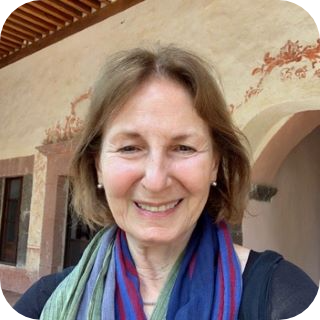
Celia Jaes Falicov
Ph.D. Director of Mental Health, Student-Run Free Clinics Project, Department of Family Medicine and Public Health, School of Medicine, University of California, San Diego, USA
Dr. Celia Jaes Falicov, Ph.D., is an internationally renowned family therapy author, teacher, and clinician. She is Past President of the American Family Therapy Academy, a Visiting Professor at the Tavistock Clinic in London and at Harvard Medical School in Boston. She has pioneered numerous publications on cultural and sociopolitical perspectives in systems theory, clinical practice and supervision and has received many awards and professional recognitions for this work. Her models for integrating cultural sociopolitical contexts and new technologies of communication in relational practices with transnational families are used extensively in the training systems-oriented professionals. Her recent books are Latino Families in Therapy, 2nd edition, and the co-authored Multiculturalism and Diversity in Clinical Supervision. Dr Falicov’s recent articles in Family Process “Centering the Voice of Socioeconomically Disadvantaged Populations” (2021) and “Expanding Possibilities with Under resourced Immigrants during Covid-19” (2020). In her current position as Director of Mental Health at the community free clinics of the University of California, she promotes culturally responsive and empowering systemic practices in the treatment of underserved immigrant families, while training medical students, psychologists, and language interpreters on the impact of immigration on health and mental health.
Celia Jaes Falicov
Directrice de Santé mentale, du projet Student-Run Free Clinics, du Département de Médecine familiale et de santé publique, Faculté de Médecine, Université de Californie, San Diego, USA
Systemic Practices With Immigrant Families as Complex Cultural and Sociopolitical Encounters
Celia Jaes Falicov
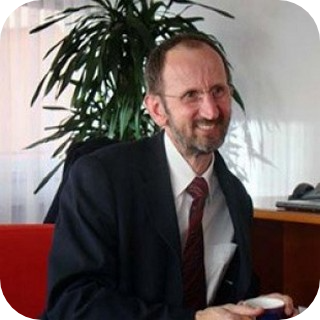
Christian Gostečnik
OMF, Ph.D., Full time Professor, Faculty of Theology, Department of marriage and family therapy, University of Ljubljana & Director of Franciscan Family Institute, University of Ljubljana, SLOVENIA
Christian Gostečnik, is a clinical psychologist, theologian and full time professor of marriage and family therapy at University of Ljubljana. In 1983 he finished his theological studies, department of Theology, University of Ljubljana. After that he went to the USA and in 1988 he received his Master's degree in pastoral counselling at Loyola University in Chicago. He also received his doctor's degree in clinical psychology, in 1995 at Argosy University in Chicago. In 1995 he returned back to Slovenia and in 1997 he graduated with doctor's degree in Theology at the Faculty of Theology in Ljubljana and in 1999 he also graduated with doctor's degree at the Faculty of Arts, department of psychology.
In his work he is mainly focusing on projects like: marriage and family studies and training, trauma and compulsive repetition of major traumas, teenagers in crisis, families with substance abuse problems, separated families, marital conflicts, intimacy problems, theology and psychology, etc. He is the author of numerous scientific papers as well as books, dealing with theoretical and clinical themes regarding family and marital psychotherapy. He is a leader of several psychotherapy groups, e.g.,couples in crisis, sexual abuse, grieving process, group for divorced individual and he is also in a
private practice.
In 1995 he established Franciscan Family Institute, a family therapy clinic in Ljubljana, where he is a director and moderator and also a professional, clinical training leader and full time professor of postgraduate specialisation and Ph.D. program in marital and family therapy at the University of Ljubljana.
Christian Gostečnik
Professeur à temps plein, Faculté de Théologie, Département de thérapie du mariage et familiale, Université de Ljubljana & Directeur de l’Institut franciscain de la Famille, Université de Ljubljana, SLOVÉNIE
New Paradigm in Family Therapy
Christian Gostečnik
Abstract: New paradigms in Family Therapy
The paradigm shift in Family Therapy, according to Relation Family Therapy is marked by three essential themes. The first theme is the primary nature of affects and its processes, which mostly operate on an unconscious level, and are dominant in all Family Systems. The concept of the primacy of the affect has radically shifted scientific professional research and perception, moving from the behavioural and cognitive scene, which have dominated for decades, to the domain of affective processes, which are the most visible and evident ingredients in marital and family systems. The second theme, which also participates in the complete paradigm shift, is the so-called mechanism of regulation which is basic mechanism of every family system. It basically leads to the development and promotion of self-regulation and the regulation of stress of all the members of the family. Family System regulation is defined as an essential mechanism of any healthy development, and the enhancement of the emotional processes in the family. The third theme of paradigm shift derives from the development of neuroscience, which in modern times has increasingly focused on prenatal and postnatal stages of brain development. Based on this research, we can predispose that the relationship with the mother and the father, i.e., early attachment, is essential in the maturation of the brain and that this relationship forever impacts the child as well as the adult, also in latter building the new family systems, where the dynamics from the early childhood, especially abuse and neglect or trauma experiencing in difunctional family of origin could be re-enacted. These three themes are remarkably applicable in Relational Family Therapy and are quintessential building blocks of family therapy.
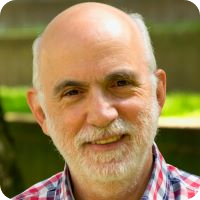
Renos Papadopoulos
Professor in the Department of Psychosocial and Psychoanalytic Studies, Director of the ‘Centre for Trauma, Asylum and Refugees' , University of Essex, Honorary Clinical Psychologist and Systemic Family Psychotherapist at the Tavistock Clinic, UK
Christian Gostečnik, is a clinical psychologist, theologian and full time professor of marriage and family therapy at University of Ljubljana. In 1983 he finished his theological studies, department of Theology, University of Ljubljana. After that he went to the USA and in 1988 he received his Master's degree in pastoral counselling at Loyola University in Chicago. He also received his doctor's degree in clinical psychology, in 1995 at Argosy University in Chicago. In 1995 he returned back to Slovenia and in 1997 he graduated with doctor's degree in Theology at the Faculty of Theology in Ljubljana and in 1999 he also graduated with doctor's degree at the Faculty of Arts, department of psychology.
In his work he is mainly focusing on projects like: marriage and family studies and training, trauma and compulsive repetition of major traumas, teenagers in crisis, families with substance abuse problems, separated families, marital conflicts, intimacy problems, theology and psychology, etc. He is the author of numerous scientific papers as well as books, dealing with theoretical and clinical themes regarding family and marital psychotherapy. He is a leader of several psychotherapy groups, e.g.,couples in crisis, sexual abuse, grieving process, group for divorced individual and he is also in a
private practice.
In 1995 he established Franciscan Family Institute, a family therapy clinic in Ljubljana, where he is a director and moderator and also a professional, clinical training leader and full time professor of postgraduate specialisation and Ph.D. program in marital and family therapy at the University of Ljubljana.
Renos Papadopoulos
Professor in the Department of Psychosocial and Psychoanalytic Studies, Director of the ‘Centre for Trauma, Asylum and Refugees' , University of Essex, Honorary Clinical Psychologist and Systemic Family Psychotherapist at the Tavistock Clinic, UK
Involuntary Dislocation in Systemic Perspectives
Renos Papadopoulos
In our societies today, in most parts of the world, we experience the proliferation of various forms of Involuntary Dislocation. These affect all of us in a multiplicity of direct and indirect ways, visible and invisible, not only in relation to the wellbeing of affected people, but also in terms of our sense of ourselves and of our Weltanschauung.
What can systemic thinking contribute to enriching our conceptualisation of these phenomena and, moreover, in what way can it improve our ways of effectively working in this sphere?
In this presentation I will propose a framework that emphasises the importance of epistemological precision and agility in grasping these complexities. Such a framework identifies not only the losses and suffering incurred, but also appreciates (a) the strengths that the affected people are able to retain from before their exposure to adversity, and (b) their new strengths that they acquire as a direct outcome of having being exposed to adversity. Without such an appropriate epistemological awareness, we tend to oversimplify our perceptions of events and experiences, resulting in polarised positions that, inevitably, lead to varying degrees of distortions of reality and, thus, to ineffective therapeutic interventions.

Renata Salecl
Senior Researcher, Ιnstitute of Criminology, Faculty of Law, Ljubljana, SLOVENIA & Professor of Psychology and Psychoanalysis of Law, School of Law, Birkbeck College, University of London, UK
Renata Salecl is a philosopher and sociologist. She is a Senior Researcher at the Institute of Criminology at the Faculty of Law in Ljubljana, Slovenia and Professor of Psychology and Psychoanalysis of Law at the School of Law, Birkbeck College, University of London. She has been Slovenian Woman of the year as well as Slovenian Woman Scientist of the year. Her book Tyranny of Choice (Profile Books 2010) has been translated into 15 languages and was featured at TED Global. Her previous books include The Spoils of Freedom (Routledge 1994), (Per)versions of Love and Hate (Verso, 1998), and On Anxiety (Routledge 2004). Her last book, A Passion for Ignorance: What we choose not to know and why (Princeton UP, 2020), is translated into eight languages.
Renata Salecl
Chercheuse principale, Institut de Criminologie, Faculté de Droit de Ljubljana, SLOVÉNIE, et Professeure de Psychologie et de Psychanalyse du Droit, Faculté de Droit du Collège Birkbeck, de l’Université de Londres, ROYAUME-UNI
Apathy and Aggression in Times of Post-truth
Renata Salecl & Lieven Miegerode
Couples suffering from couple violence: understanding from within (Lieven Miegerode)
As a couple therapist we are in need of an understanding of the suffering of the couples encountering violence in their relationship that allows us to be with, calm, non-judging ,and tuning into the suffering of both partners, the relationship and the family. We propose to find this understanding in the attachment/love needs in the couple. Therapy then anchors in the understanding in attachment and consists of helping couples to find physical safety through emotional safety. We limit this approach to couples suffering from Situational Couples Violence (SCV) which is, as research shows, the majority of cases in the population and even more dominant in couples seeking help.

Günter Schiepek
Director of the Institute Synergetics and Psychotherapy Research at the Paracelsus Medical University Salzburg, AUSTRIA & of the Center for Complex Systems, GERMANY
Günter Schiepek is since 2008 professor at the Ludwig-Maximilians-University Munich and at the Paracelsus Medical University Salzburg. Visiting professor at the Sapienza University, Rome (2019). Visiting-Professor at the Donau-University Krems and at the Alpen-Adria University Klagenfurt (Austria). Günter Schiepek, o.Univ.-Prof. Dr. phil. Dr. phil. habil. Director of the Institute Synergetics and Psychotherapy Research at the Paracelsus Medical University Salzburg (Austria) and of the Center for Complex Systems (Stuttgart/Germany). Since 2008 professor at the Ludwig-Maximilians-University Munich and at the Paracelsus Medical University Salzburg. Visiting professor at the Sapienza University, Rome (2019). Visiting-Professor at the Donau-University Krems and at the Alpen-Adria University Klagenfurt (Austria). Member of the European Academy of Sciences and Arts (Academia Scientiarium et Artium Europaea) since 2009, vice dean of the medical class from 2012 to 2018. Honorary fellow of the German Society of Systemic Therapy and Systemic Research. Fellow of the Mind Force Institute (London, UK). Scientific consultant of the German Society for Systemic and Family Therapy (DGSF). Accredited trainer and supervisor for Systemic Therapy (DGSF). Member of the scientific directory of the German-Japanese Society for Integrative Science. Member of the German Society of Psychology and of the SPR interest group on complex systems.Main research topics: Synergetics and dynamics of nonlinear systems in psychology, neuroscience, and management. Process-outcome-research in psychotherapy. Neuroscience of psychotherapy. Internet-based Real-Time Monitoring of change processes in different fields. Social psychology. Management. Research in the measurement and development of human competencies.Member of the scientific board of different institutions, communities, and journals. Published 24 books and about 300 papers in international and German scientific journals and readers.
Günter Schiepek
Directeur de l'Institut Synergetics and Psychotherapy Research de la Paracelsus Medical University Salzburg, AUTRICHE & du Center for Complex Systems, ALLEMAGNE
From evidence-based practice to practice-based evidence:
The complextiy paradigm shift in psychotherapy research and practice
Günter Schiepek
During the last decades, practice and research were different worlds. Research was done in universities and practitioners should apply the results or the treatment programs/protocols which were developed by researchers. At the other side, practitioners had no interest in doing this and also had no means to collect data. This schism changed when digitalization entered in practice and practitioners got new options for monitoring therapeutic processes and outcome. Process and combined process-outcome research was established in practice. The role of practitioners was changed to scientist-practitioners and also many scientists appreciated that data from the real world of clients and from practice could create more valid and applicable results. More than this, the topics, aims, and methods changed. Instead of RCTs, a fine grained assessment processes got possible by high-frequency monitoring using smart phones. Methods were available not only for data acquisition, but also for nonlinear data (time series) analysis. The results could be fed back to the running process and could be reflected by therapists and clients in the sessions (e.g., shared decision making). This systemic approach not only allowed for data acquisition in real world settings, but also changed the conceptualization of psychotherapy as a self-organizing dynamic process. Self-organization of complex bio-psycho-social systems got a new paradigm, which has impact also on modelling and theory development in psychotherapy and on understanding brain dynamics of psychotherapeutic change. An amazing consequence was an evolution step to a personalized psychotherapy with a high sensitivity to the process, and also the potential to integrate historic schisms like quantitative vs qualitative approaches, idiographic vs nomothetic research, single case studies vs big data. Beside mathematical algorithms, in the future also AI will play a role in real-time data analysis and data interpretation.
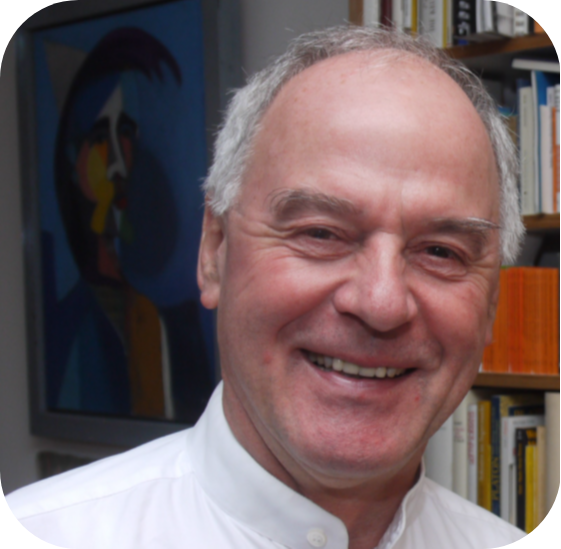
Wilhelm Schmid
Freelance Philosopher, Adjunct Professor of Philosophy,University of Erfurt (retired since 2019), GERMANY
Wilhelm Schmid, PhD, was born in 1953 and is a Freelance Philosopher located in Berlin. Dr. Wilhelm Schmid has extensive lecturing experience in Germany and since 2010 also in China, South Korea, Taiwan, and India. In 2012 he was awarded the German Meckatzer Philosophy Prize for special services to the teaching of philosophy, and in 2013 the Swiss Egnér Prize for his previous work on the art of living. He studied philosophy and history in Berlin, Paris and Tübingen, and taught philosophy at the University of Erfurt. For a time he worked as a guest lecturer in Riga/Latvia and Tbilisi/Georgia, and as a philosophical interlocutor at the Affoltern am Albis hospital near Zurich/Switzerland.His published work includes, in English, Harnessing the Power of Unhappiness, New York 2014 and What We Gain As We Grow Old – On Gelassenheit, New York 2015.
http://www.lebenskunstphilosophie.de
YouTube: Wilhelm Schmid – Philosophische Spaziergänge (Philosophical Walks).
.
Wilhelm Schmid
Philosophe indépendant, professeur adjoint de philosophie, Université d'Erfurt (retraité depuis 2019), ALLEMAGNE
The Art of Living in Times of Crisis
Wilhelm Schmid
Crises are piling up, uncertainty is growing, unrest is increasing and, yes, so is fear. Corona, war, climate change, how are we to cope with all this? What is important for wise concern is the willingness to adapt quickly to the new situation and not to mourn the previous "old" life for a long time. The art of living means first of all: not doing what I cannot change. And doing what can be done. Not wasting energy. Not complaining endlessly about what is missing, but looking at what is possible. Whether this is easy or difficult has to do with the fundamental concept of what life is.
A widespread view before the crises was that it should be a "good life" in which everything is "positive" and goes as desired. This leads to much too high expectations of life and at some point to bitter disappointment. For a long time, it seemed to be all about increasing happiness. More and more people believed in it with fervour and conjured it up as if they could force it. The bar of happiness expectations was set so high that a deep fall had long been feared. The fact that some suffer terribly even under simple restrictions also has to do with the fact that the dictatorship of happiness had become total.

Justine van Lawick
Systemic Psychotherapist, Teacher and Supervisor Systemic Therapy, Founder of the Lorentzhuis, Haarlem, THE NETHERLANDS
Justine van Lawick is a psychologist, systemic therapist and founder of the Lorentzhuis, a centre for systemic therapy, training and consultation in Haarlem, the Netherlands. She is a senior trainer in the Netherlands and abroad.
Her areas of interest focus on addressing violent behaviour and demonization in couples, families and groups with compassion for all involved members and without blaming. Her latest project addresses multifamily work with divorced parents in high conflict and their children. Working on relational ethics and practices of hope in the middle of tragedy are in the centre of her work.
Justine has also published many texts in English.
Justine van Lawick
Psychothérapeute systémique, Enseignant et Superviseur en thérapie systémique, Fondateur du Lorentzhuis, Haarlem, PAYS-BAS
Α Polyphonic and Embodied Dialogue Around Family Violence
Justine van Lawick
We cannot escape violence, violence is everywhere. Against our planet; the categorised other; animals, trees, plants, earth, air, and water. Political violence and war, institutional violence, racist violence, gender violence, Violence in schools, in health care and mental health practices, in pandemic times. Violence related to the unjust and ever growing gap between the rich/privileged and the poor people that are excluded from resources. Violence against our bodies. Violence in families. We can neither escape love, love is everywhere between us humans and between humans and non-humans. And love and violence can go together. We all are loving creatures that can be violent. As systemic thinkers and practitioners we cannot deny or neglect the violent context that influences all of us. We are part of it. When we work with high conflict in couples and families, the dynamics are always complicated and related to stories of vulnerability and strengths. This will be the starting point for a polyphonic and embodied story of a family where conflicts escalate in violence. I will present the family, their context, their pain and frustrations, their efforts and resilience, and also suggest some useful interventions.

Maria Borcsa
PhD, Professor in Clinical Psychology, Institute of Social Medicine, Rehabilitation Sciences and Healthcare Research University of Applied Sciences Nordhausen, GERMANY
Maria Borcsa, PhD, is Professor of Clinical Psychology at the University of Applied Sciences Nordhausen (UASN), Germany, licensed psychological psychotherapist (CBT), family therapist, trainer and supervisor, author and (co-)editor of numerous scientific articles and books in German, English, French, Greek, Italian and Spanish. She is founding member of the Institute of Social Medicine, Health Care Research and Rehabilitation Sciences at UASN, member of the Editorial Board of the journals "Testing, Psychometrics, Methodology in Applied Psychology", “Contemporary Family Therapy”, international associate editor of “Journal of Family Therapy”, advisory editor of “Family Process”, associate editor of “Encyclopedia of Couple and Family Therapy”, and founding editor of the EFTA Family Therapy Book Series. She has been board member of the German Association for Systemic Research, Therapy, Supervision and Counseling (SG) (2005-2011), board member of the European Family Therapy Association (EFTA) (2007-2016), chair of the chamber of National Family Therapy Organizations of EFTA (2010-2013), and president of EFTA (2013-2016). In 2019, she received an award from EFTA for her excellence in the research field of family therapy and systemic practice.
Maria Borcsa
PhD, Professeure de Psychologie clinique, Institut de Médecine sociale, des sciences de la réhabilitation et de recherche en soins de santé, Université des sciences appliquées de Nordhausen, ALLEMAGNE
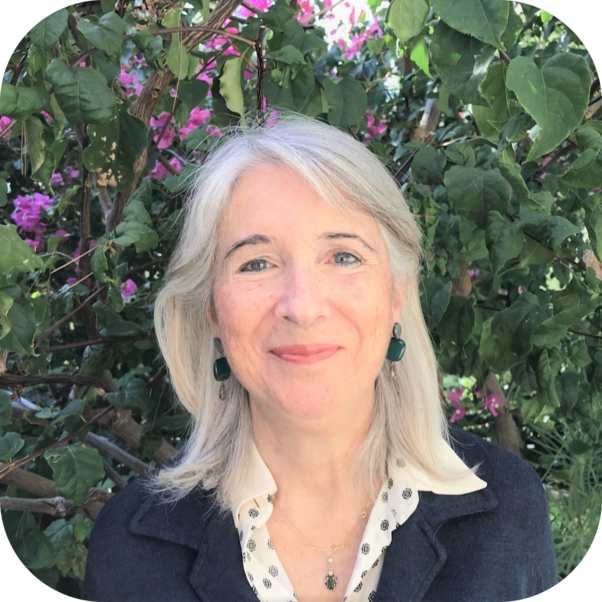
Valeria Pomini
PhD, Clinical Psychologist and Psychotherapist, 1st Department of Psychiatry, Medical School, National & Kapodistrian University of Athens, GREECE
Valeria Pomini, PhD, is licensed Clinical Psychologist and Psychotherapist at the 1st Department of Psychiatry, Medical School, National & Kapodistrian University of Athens, Greece. She works as family therapist and supervisor at Eginition Hospital, at the Family Therapy Unit, of which she is co-founder (1988) and coordinator since 2010. Since 1992, she is co-founder and co-director of the 4-year Training Course in Systemic Family and Marital Therapy at the Athens University Mental Health Research Institute “Costas Stefanis” (UMHRI). She has a wide teaching experience in Greece and abroad at academic master programs of education as well as at institutes providing training in systemic family and couple psychotherapy. She has also experience as team supervisor in several mental health services of the public sector in Greece during the last thirty years. She is author and (co-)editor of several scientific articles and books in Greek, English and Italian. She is founding member and member of the Editorial Board of the journal Systemic Thinking and Psychotherapy, founding member and past-president (2004-2010) of the Hellenic Systemic Thinking and Family Therapy Association (HESTAFTA), and member of the Board of the Greek Federation of Associations of Systemic and Family Therapy “ETHOS”. She is also co-chair of the Committee for Psychotherapy of the Hellenic Psychological Association.
Valeria Pomini
PhD, Psychologue clinique et Psychothérapeute, Premier Département de Psychiatrie, Faculté de Médecine, Université nationale Capodistria d’Athènes, GRÈCE
Virtual Relations and Systemic Therapy: Towards a Third-Order Cybernetics
Maria Borcsa, Valeria Pomini
Being it the isolation during the Corona pandemic or the separation of family members after fleeing war zones: The role of Information and Communication Technologies (ICTs) for maintaining connections and relationships seems more essential than ever. These living conditions are reflected in the therapeutic landscape: ICTs have become indispensable in mental health services and systemic practice as well.
Interestingly, systemic thinking grounded in cybernetics with a reference to technological developments from its very beginning. Decades afterwards, we are facing a challenge to adapt our systemic practices to what the presenters call the digital communication 2.0.
The keynote provides an overview of current developments in the use of ICTs in systemic therapy. It combines insights from pre-pandemic times with knowledge that has emerged "out of necessity" in the last two years. Taking the digital revolution seriously, we face a development towards a third-order cybernetics.
*Prof. Borcsa et Dr. Pomini donneront ensemble une conférence principale



